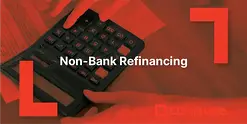Using Home Equity When Refinancing: Opportunities for NZ Homeowners
 By
Trent Bradley
·
14 minute read
By
Trent Bradley
·
14 minute read

Home equity represents one of your most valuable financial assets as a New Zealand homeowner. It's the portion of your property that you truly own—the difference between your home's current market value and what you still owe on your mortgage. Refinancing provides an opportunity to access this equity and put it to work for various financial purposes, from home improvements to investment opportunities.
Key Takeaways
- Home equity is the difference between your property's market value and mortgage balance—it grows through mortgage principal payments and property value appreciation
- Most NZ lenders allow borrowing up to 80% of property value, meaning you must maintain at least 20% equity as a buffer against value fluctuations
- Converting $25,000 credit card debt at 21% interest to mortgage debt at 6% saves approximately $3,750 annually in interest charges
- Well-chosen home renovations like kitchen and bathroom updates typically recover 70-90% of their cost in added property value
- Accessing equity increases total debt and extends repayment timelines—$50,000 borrowed at 6% over 20 years costs approximately $32,000 in interest
- Property investment using home equity requires ability to service both mortgages during vacancy periods and understanding of landlord responsibilities
- Debt consolidation only works long-term if underlying spending behaviors change—otherwise you risk accumulating new consumer debt while carrying consolidated amounts in your mortgage
This comprehensive guide explains what home equity is and how it accumulates, explores legitimate and strategic uses for equity, shows you how to calculate available equity when refinancing, discusses the risks and responsibilities of accessing equity, and provides guidance for making smart decisions about leveraging your property wealth.
Understanding Home Equity
Before exploring how to use equity, it's essential to understand what it is and how it grows over time.
What is Home Equity?
Home equity is simply the difference between your property's current market value and the outstanding balance on your mortgage. If your home is worth eight hundred thousand dollars and you owe four hundred thousand dollars on your mortgage, you have four hundred thousand dollars in equity.
This equity represents genuine wealth you've accumulated through mortgage repayments that reduce your loan balance and property value appreciation that increases your home's worth. Unlike the balance in your bank account, equity isn't liquid—you can't spend it directly. However, you can access it through refinancing, home equity loans, or by selling your property.
How Equity Accumulates
Your equity grows through two primary mechanisms. First, every mortgage payment you make includes both principal and interest. The principal portion directly reduces your loan balance, increasing your equity. Early in your mortgage, most of your payment goes toward interest, but over time, more goes toward principal as your balance decreases.
Second, property value appreciation increases your equity without you doing anything. If your eight hundred thousand dollar property increases in value to eight hundred and fifty thousand dollars while your mortgage balance remains constant, you've gained fifty thousand dollars in equity simply from market appreciation.
Strategic actions also build equity faster. Making extra mortgage payments beyond your required amount accelerates principal reduction. Home improvements that add value increase your property's worth. And in rising markets, simply holding your property as values climb builds equity passively.
The Two Types of Equity
It's helpful to think of equity in two categories. Usable equity is the amount you can actually access through refinancing while maintaining required loan-to-value ratios. Most New Zealand lenders allow you to borrow up to eighty percent of your property's value, meaning you must maintain at least twenty percent equity.
Locked equity is the minimum twenty percent you must keep in your property to meet standard lending criteria. While this equity technically belongs to you, you can't access it without accepting higher interest rates, paying for lenders mortgage insurance, or selling the property.
For example, if your home is worth one million dollars, lenders typically allow you to borrow up to eight hundred thousand dollars. If you currently owe five hundred thousand dollars, you have three hundred thousand dollars in usable equity available to access through refinancing, while two hundred thousand dollars remains locked as your minimum twenty percent.
Strategic Uses for Home Equity
Accessing equity through refinancing makes sense for various legitimate purposes, though not all uses are equally wise.
Home Renovations and Improvements
Using equity for home renovations is one of the most common and often most justified uses. Well-chosen improvements can increase your property's value, potentially offsetting the increased mortgage debt. Kitchen and bathroom renovations typically deliver strong returns, often recovering seventy to ninety percent or more of their cost in added property value.
Adding bedrooms or living space through extensions or conversions can substantially increase property value, sometimes exceeding the renovation cost in high-demand areas. Energy efficiency improvements like insulation, double glazing, or solar panels reduce ongoing costs while making properties more attractive to future buyers.
However, not all renovations add equivalent value. Luxury upgrades that exceed neighborhood standards often don't return their full cost. Highly personal choices that don't appeal to broad buyer preferences may add minimal value. And cosmetic updates, while making your home more enjoyable, typically add less value than functional improvements.
Before accessing equity for renovations, obtain quotes from builders, research what similar renovations cost and what value they added to comparable properties, and consider whether the improvements align with your long-term property plans.
Investment Property Purchases
Many New Zealand investors use equity in their family home to purchase investment properties, leveraging existing wealth to build property portfolios. This strategy can be powerful for wealth building if executed carefully.
The equity in your home becomes the deposit for an investment property, allowing you to enter the property market without saving a separate cash deposit. Rental income from the investment property ideally covers most or all of the mortgage payments on the investment loan, while the property appreciates over time.
However, property investment carries significant risks and responsibilities. Investment properties require ongoing maintenance and management, vacancy periods when you receive no rental income but still pay the mortgage, and potential for property values to fall as well as rise. If your investment property proves problematic or vacant, you must service both mortgages from your income.
Additionally, accessing equity increases your overall debt level and financial risk. If property values fall, you could find yourself overleveraged with less equity cushion than you anticipated.
Before using equity for investment properties, consider whether you can genuinely afford to service both mortgages if rental income stops, understand landlord responsibilities and legal requirements in New Zealand, research thoroughly the areas and property types you're considering, and perhaps consult with financial advisers or experienced property investors.
Debt Consolidation
Using equity to consolidate high-interest consumer debts like credit cards, personal loans, or car loans can generate substantial savings and simplify your finances. The interest rate on mortgage debt is typically much lower than consumer debt rates, sometimes less than a third of credit card interest rates.
For example, if you're carrying twenty-five thousand dollars in credit card debt at twenty-one percent interest, you're paying approximately five thousand two hundred and fifty dollars annually in interest alone. By refinancing to access equity and pay off this debt, then adding it to your mortgage at six percent, your annual interest drops to one thousand five hundred dollars—a saving of three thousand seven hundred and fifty dollars per year.
Beyond interest savings, consolidation simplifies your financial life by reducing multiple payment dates and accounts to a single mortgage payment. This reduces the risk of missed payments and makes budgeting more straightforward.
However, debt consolidation through equity access only works if you address the underlying spending behaviors that created the debt. Refinancing provides a fresh start, but without changing habits, you risk accumulating new high-interest debt while still carrying the consolidated amount in your mortgage—leaving you worse off than before.
Also recognize that converting short-term consumer debt into long-term mortgage debt means paying interest over many more years. While monthly payments decrease, total interest paid over the life of the loan might increase unless you make extra payments to offset the extended term.
Education and Professional Development
Accessing equity to fund education—whether for yourself or your children—can be a strategic investment in future earning potential. Postgraduate degrees, professional qualifications, or specialized training that significantly enhance career prospects and income may justify using equity.
Compare the cost of accessing equity against alternative education funding like student loans. In some cases, student loans offer more favorable terms, while in others, using equity provides better overall value.
Ensure the education investment has genuine earning potential. Arts degrees or hobby courses, while personally enriching, may not generate sufficient income increases to justify significant debt. Professionally relevant qualifications that open specific career doors provide clearer justification.
Business Investment
Some homeowners access equity to start or grow businesses. This can be viable if you have a solid business plan, relevant experience and skills, realistic financial projections, and sufficient risk tolerance to potentially lose the investment.
However, using equity for business purposes is inherently risky. Most new businesses fail within the first few years, and losing borrowed equity means both losing the business and significantly increasing your mortgage debt with nothing to show for it.
Never risk your family home on business ventures unless you can genuinely afford to lose the amount and still comfortably service your mortgage. Consider whether alternative business funding like commercial loans, investors, or bootstrapping makes more sense than putting your home at risk.
Emergency Financial Needs
Sometimes equity access serves genuinely urgent purposes like unexpected medical expenses not covered by insurance, essential repairs to maintain your home's safety and functionality, or supporting family members in crisis situations.
While it's preferable to have emergency savings rather than relying on equity, refinancing to access equity can provide crucial funds when emergencies exceed available savings. This is a legitimate use, though ideally a last resort after exploring other options.
How Much Equity Can You Access?
Understanding how to calculate your available equity helps you plan refinancing and know what's realistically achievable.
The Eighty Percent Rule
Most mainstream New Zealand lenders allow you to borrow up to eighty percent of your property's value without requiring lenders mortgage insurance or charging premium rates. This means you must maintain at least twenty percent equity that remains in your property.
Some lenders offer loans above eighty percent LVR, but these typically come with higher interest rates, additional insurance requirements, and more stringent approval criteria. Unless absolutely necessary, staying at or below eighty percent LVR provides the best terms and rates.
Calculating Your Available Equity
Start with your property's current market value. Obtain a recent valuation or use recent sales of comparable properties in your area to estimate realistically. Overestimating your property value leads to disappointment when official valuations come in lower.
Multiply your property value by eighty percent to determine your maximum borrowing limit. For example, if your property is worth nine hundred thousand dollars, your maximum borrowing is seven hundred and twenty thousand dollars.
Subtract your current mortgage balance from this maximum borrowing amount to reveal your available equity. If you currently owe five hundred thousand dollars, you have two hundred and twenty thousand dollars in potentially accessible equity.
However, remember that accessing equity means increasing your mortgage balance and your monthly payments. Ensure you can comfortably service the higher mortgage amount from your income.
Example Calculations
Consider Maria, whose property recently valued at one million one hundred thousand dollars. Her current mortgage balance is six hundred thousand dollars. Her maximum borrowing at eighty percent LVR is eight hundred and eighty thousand dollars. Subtracting her current balance of six hundred thousand dollars reveals two hundred and eighty thousand dollars in available equity.
Maria could refinance to access up to two hundred and eighty thousand dollars for renovations, investments, or other purposes while maintaining twenty percent equity in her property.
Compare this to James, whose property is worth six hundred thousand dollars with a current mortgage of five hundred and twenty thousand dollars. His maximum borrowing is four hundred and eighty thousand dollars. Since he already owes five hundred and twenty thousand dollars, he actually has negative available equity—his current mortgage already exceeds eighty percent LVR.
James would need to pay down his mortgage or wait for property value appreciation before he could access any equity. He might also need to refinance to a lower LVR to qualify for standard interest rates.
Factors That Affect Equity Access
Several factors beyond simple mathematics influence how much equity you can actually access. Your income and ability to service a larger mortgage is paramount—lenders must confirm you can afford increased payments. Strong income, low debts, and good credit history maximize what you can borrow.
Your employment stability matters significantly. Permanent employment is viewed more favorably than contract or casual work when assessing larger borrowing amounts. The purpose for which you're accessing equity influences some lenders' willingness to approve higher borrowing. They're typically more comfortable with equity used for home improvements than for consumer spending.
Your age and remaining working years factor into serviceability calculations for larger mortgages. Lenders want confidence you can repay the debt over a reasonable timeframe.
Risks and Responsibilities of Accessing Equity
While accessing equity provides opportunities, it also creates risks and obligations you must understand fully.
Increased Debt Burden
The most obvious risk is that accessing equity increases your mortgage balance and therefore your monthly payments. If you access fifty thousand dollars in equity, your mortgage payments might increase by two hundred and fifty to three hundred dollars monthly depending on interest rates and terms.
Ensure you can comfortably afford these higher payments from your regular income. Consider what happens if interest rates rise—could you still afford payments if rates increased by one or two percentage points?
Build a buffer in your budget rather than stretching to barely afford the new payment amount. Financial circumstances change, and you need flexibility to handle unexpected expenses or income reductions.
Reduced Equity Cushion
Accessing equity reduces your buffer against property value declines. If you maintain only the minimum twenty percent equity and property values fall by fifteen percent, you're suddenly in negative equity territory where you owe more than your property is worth.
Negative equity doesn't affect you immediately if you continue making payments and don't need to sell. However, it eliminates refinancing flexibility, prevents you from accessing additional equity if needed, and creates problems if you must sell during the negative equity period.
Maintaining equity above the minimum twenty percent provides valuable financial security. Consider whether accessing equity right up to your maximum borrowing limit is truly necessary or whether accessing less maintains a healthier financial position.
Longer Repayment Timeline
Accessing equity effectively restarts your mortgage clock on the accessed amount. If you've been paying your mortgage for ten years and access fifty thousand dollars in equity, you're now paying interest on that fifty thousand dollars over your remaining loan term—potentially twenty or more years.
This extended repayment means you pay significantly more interest over time than the equity you accessed. Fifty thousand dollars borrowed at six percent over twenty years costs approximately thirty-two thousand dollars in interest, meaning the true cost is eighty-two thousand dollars by the time it's fully repaid.
To mitigate this, consider maintaining or even increasing your mortgage payment amounts after accessing equity. This accelerates repayment and minimizes total interest costs.
Purpose Discipline
When you access equity, the money arrives as a lump sum in your account. Without discipline, it's easy to let these funds drift toward less important purposes than originally intended.
Be specific and committed about how you'll use accessed equity. If you're accessing fifty thousand dollars for renovations, open a separate account specifically for renovation costs and ensure funds are only spent on that purpose.
Avoid the temptation to access more equity than you truly need just because it's available. Every dollar you access is a dollar of increased debt you must repay with interest.
Impact on Future Borrowing Capacity
Higher mortgage debt reduces your borrowing capacity for other purposes. If you later need to access additional funds for emergencies or opportunities, your increased mortgage balance limits how much further equity you can access.
Similarly, if you're considering purchasing another property or taking on other significant debt, your elevated mortgage reduces what other lenders are willing to provide.
Making Smart Equity Access Decisions
Strategic thinking helps ensure accessing equity truly benefits your financial position.
Ask Critical Questions
Before accessing equity, honestly answer several important questions. Is this purpose genuinely important or just convenient? Could you achieve the same outcome by saving over time instead of borrowing? Will this use of equity generate returns—whether financial returns or quality of life improvements—that justify the cost? Can you comfortably afford the increased mortgage payments over the long term?
If you can't answer these questions affirmatively, reconsider whether accessing equity is the right choice.
Compare Alternatives
Consider whether other funding sources might better serve your purpose. Personal loans, while carrying higher interest rates, involve smaller amounts and shorter terms for some purposes. Investment loans might offer tax advantages for property investments. Saving over time, while requiring patience, avoids increased debt entirely.
Only access equity if it's genuinely the best option after considering alternatives, not simply because it's convenient or available.
Start Conservatively
If you're uncertain about how much equity to access, err on the side of accessing less rather than more. It's relatively easy to access additional equity later if needed, but extremely difficult to put equity back if you overextended.
Starting conservatively maintains financial flexibility and reduces risk if circumstances change or if the purpose for accessing equity doesn't work out as planned.
Maintain Emergency Reserves
Don't use all your financial resources including accessed equity for a single purpose. Maintain emergency savings separate from any equity you access to handle unexpected expenses without financial crisis.
If you're accessing equity for renovations, keep a contingency fund for cost overruns rather than spending every dollar of accessed equity, leaving no buffer if things cost more than expected.
Plan for Repayment
Have a clear plan for how the accessed equity will be repaid over time. If you can afford higher payments than your lender requires, commit to making them consistently. This accelerates equity rebuilding and reduces total interest paid.
For investment purposes, ensure your investment strategy includes plans for eventually paying down the equity you've accessed, not simply carrying the debt indefinitely.
Professional Guidance for Equity Decisions
Given the complexity and risks involved in accessing equity, professional advice is often valuable.
When to Seek Advice
Consider consulting professionals when you're contemplating accessing significant equity amounts, using equity for business or investment purposes, unsure whether accessing equity is financially wise, or facing complex decisions about multiple potential uses for equity.
Financial advisers can help you understand the long-term implications, evaluate whether your purpose justifies the debt, and ensure accessing equity aligns with your broader financial goals.
What Advisers Can Help With
Mortgage brokers help you understand how much equity you can access, find lenders offering the best terms for equity access, structure your refinancing optimally, and ensure you're getting competitive rates.
Financial advisers help you evaluate whether accessing equity makes sense for your overall financial plan, compare accessing equity against alternative funding sources, understand tax implications if accessing equity for investments, and develop strategies for managing and repaying accessed equity.
At Luminate Financial Group, we help New Zealand homeowners make informed decisions about accessing equity by calculating exactly how much equity you can access, explaining the costs and implications clearly, evaluating whether your intended use justifies the debt, structuring refinancing to achieve your goals efficiently, and providing ongoing support as your circumstances evolve.
We've guided hundreds of homeowners through equity access decisions, helping them leverage property wealth strategically while avoiding common pitfalls. Our goal is ensuring you make decisions that genuinely benefit your long-term financial wellbeing, not simply processing transactions.
Frequently Asked Questions
How do I calculate how much equity I can access from my home?
Start with your property's current market value (obtain a recent valuation or use comparable sales). Multiply this value by 80% to determine your maximum borrowing limit at standard rates. Subtract your current mortgage balance to reveal available equity. For example, if your home is worth $900,000, your maximum borrowing is $720,000 (80%). If you owe $500,000, you have $220,000 in potentially accessible equity. Remember that accessing equity increases your mortgage payments, so ensure you can comfortably service the higher amount from your income.
What's the difference between usable equity and locked equity?
Usable equity is the amount you can actually access through refinancing while maintaining required loan-to-value ratios—typically the difference between 80% of your property value and your current mortgage. Locked equity is the minimum 20% you must keep in your property to meet standard lending criteria and avoid higher interest rates or lenders mortgage insurance. For a $1 million property with a $500,000 mortgage, you have $300,000 in usable equity and $200,000 in locked equity. While all equity technically belongs to you, you can't access the locked portion without accepting less favorable terms or selling.
Is using equity for debt consolidation a good idea?
Debt consolidation using equity can generate substantial savings if you're carrying high-interest consumer debt. Converting credit card debt at 21% to mortgage debt at 6% dramatically reduces interest costs—potentially saving thousands annually. However, this strategy only works if you address the underlying spending behaviors that created the debt. Without changing habits, you risk accumulating new high-interest debt while still carrying consolidated amounts in your mortgage. Also recognize that converting short-term debt into long-term mortgage debt means paying interest over many more years, so consider making extra payments to offset the extended term.
What are the risks of accessing equity for investment properties?
Property investment using home equity carries significant risks: you must service both mortgages during vacancy periods when rental income stops, investment properties require ongoing maintenance and management costs, property values can fall leaving you overleveraged with less equity cushion, and increased overall debt reduces your financial flexibility. Before using equity for investments, ensure you can genuinely afford both mortgages if rental income stops, understand landlord responsibilities and legal requirements in New Zealand, and research thoroughly the areas and property types you're considering. Consider consulting financial advisers or experienced property investors before proceeding.
Which home renovations add the most value when using equity?
Kitchen and bathroom renovations typically deliver the strongest returns, often recovering 70-90% or more of their cost in added property value. Adding bedrooms or living space through extensions or conversions can substantially increase value, sometimes exceeding renovation costs in high-demand areas. Energy efficiency improvements like insulation, double glazing, or solar panels reduce ongoing costs while attracting buyers. However, luxury upgrades exceeding neighborhood standards often don't return full costs, highly personal choices may add minimal value, and cosmetic updates typically add less than functional improvements. Research what similar renovations cost and what value they added to comparable properties before proceeding.
How does accessing equity affect my future borrowing capacity?
Accessing equity increases your mortgage debt, which reduces your borrowing capacity for other purposes. Higher mortgage payments decrease the surplus income banks assess as available for additional lending. If you later need funds for emergencies or opportunities, your increased mortgage balance limits how much further equity you can access. Similarly, if you're considering purchasing another property or taking on significant debt, your elevated mortgage reduces what other lenders are willing to provide. Maintaining equity above the minimum 20% and avoiding borrowing to your absolute maximum preserves financial flexibility for future needs.
What happens to my equity if property values decline?
If you maintain only the minimum 20% equity and property values fall by 15%, you could enter negative equity territory where you owe more than your property is worth. Negative equity doesn't affect you immediately if you continue making payments and don't need to sell—you can wait for values to recover. However, it eliminates refinancing flexibility, prevents accessing additional equity if needed, and creates problems if you must sell during the negative equity period. This is why maintaining equity above the minimum 20% provides valuable financial security and why you should carefully consider whether accessing equity right up to your maximum borrowing limit is necessary.
Should I use equity for business investment or startup funding?
Using equity for business purposes is inherently risky—most new businesses fail within the first few years, and losing borrowed equity means both losing the business and significantly increasing your mortgage debt with nothing to show for it. Only consider this if you have a solid business plan, relevant experience and skills, realistic financial projections, and sufficient risk tolerance to potentially lose the investment while still comfortably servicing your mortgage. Consider whether alternative business funding like commercial loans, investors, or bootstrapping makes more sense than putting your home at risk. Never risk your family home on business ventures unless you can genuinely afford to lose the amount.
Considering accessing equity through refinancing? Contact Luminate Financial Group today for expert guidance. We'll help you understand your options, evaluate whether it makes sense for your situation, and structure your refinancing optimally if you proceed.

Trent Bradley
Trent Bradley is a New Zealand financial advisor specializing in property-backed finance and investment consulting. With over 26 years of experience running his mortgage broking business, he has helped wholesale investors access high-yield property-backed loan opportunities. For the past 12 years, Trent has led Luminate Finance, a New Zealand finance company dedicated to connecting investors with secure property investment solutions.
































